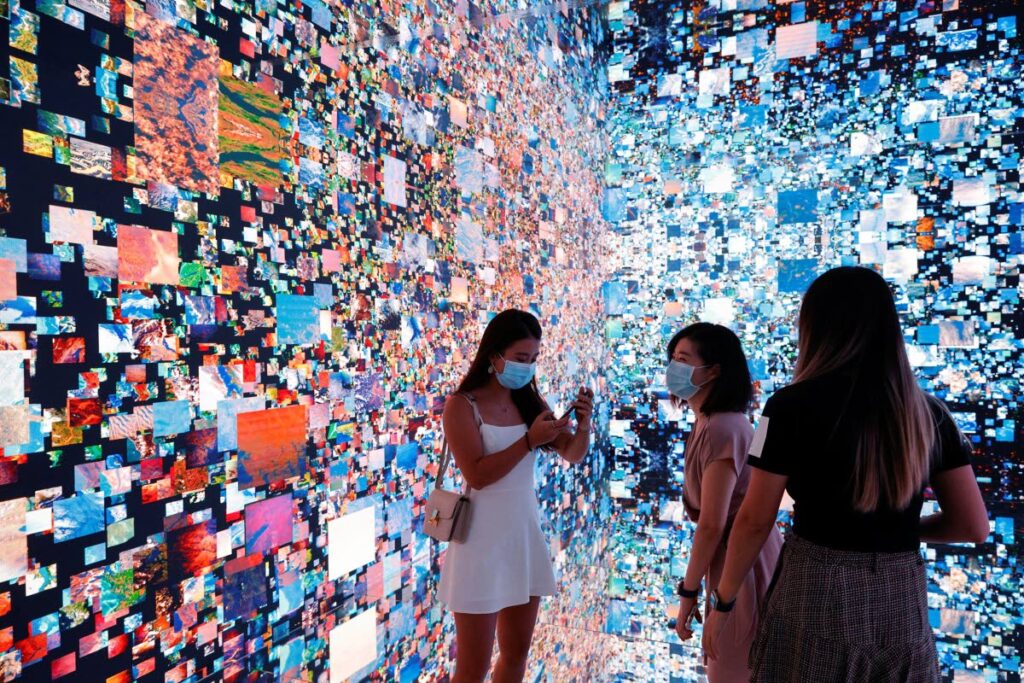Developing world must move fast to shape the metaverse

KIRAN MATHUR MOHAMMED and EDWARD INGLEFIELD
The introduction of a blockchain-based metaverse has the potential to level the playing field for small developing countries in a way that no amount of aid or reparations could ever do.
But if we don’t move fast, we will lose this opportunity to shape the rules of the game and remain relegated to our status as vassal states in an orbit of perpetual stagnation.
Whilst blockchain may be associated with that Bitcoin bro you avoid at parties, and “the metaverse” sounds like a vaguely dystopian version of the Dark Lord Zuckerberg’s fantasies, they are both relatively straightforward concepts.
The metaverse is the digital recreation of the world, including, in its ideal form, human interactions and even consciousness. Much like communism, that ideal form is far from (even virtual) reality. But we have the tools right now to make a reasonable hash at replicating many of our sensory experiences in a virtual environment.
Blockchain is a digital ledger – a means of recording anything in a near-unalterable form online, without any duplication. In short, an accountant’s paradise.
How do the two come together? Simply: in order to recreate a digital environment with some type of fidelity to the real world, it is critical for duplication to be avoided, and all digital representations clearly recorded. Hence blockchain is very likely to be part of the plumbing of the metaverse.
The metaverse, however, is likely to be a messy place. As much as The Artist formerly known as Facebook may wish it otherwise, there are likely to be a number of platforms competing to be the underpinning of the digital world. Getting them to talk to each other will be a pain.
In the short term, these platforms will really be a rough agglomeration of software and hardware built by hundreds of different companies. This includes realistic graphics, visual and sound effects, plus the blockchain-based plumbing that will permit transactions, legal or financial, in the digital world. These will be combined with “hardware” that enables advanced haptics (technology that recreates the sensation of touch) and better wearables that mean you won’t have to walk around looking like a Daft Punk cover band to enter the digital world.
This will be a teething period defined by mass confusion. Bureaucrats will rush to exercise their instincts to regulate that which they don’t fully understand, led on by politicians eager to channel neo-Luddism into votes.
There is a vast gulf between a tiny group of optimistic techno-evangelists and the rest of the world, most of whom feel little agency in their real lives and fear they will have even less in a virtual world controlled by vast shadowy corporations.
The techno-utopians need to rapidly educate themselves on power dynamics and politics, as much as the rest of the world needs to embrace their optimistic spirit, or they will be shut down by people much less smart, but much savvier than them.
Any new set of technologies or concepts as world-changing as these throw up a vast number of philosophical, political and economic questions. Should the metaverse mirror society, with all its ills? Should it attempt to address those virtually? Who makes the rules, and how do we change them?
These are exciting questions and we can all look forward to never speaking to various cousins again after family dinners.
But they also matter hugely. The metaverse is coming, so it is useless sticking our heads in the sand. The ones who end up with a seat at the table to answer these questions will be the first ones in the door. Being fast is especially important for those actors, whether companies, individuals or countries, that are starting off with less real-world power. Facebook, the United States and China will always have a seat at the table, and cannot be expected to look out for anything other than their own interests.
It is perfectly possible to attract and develop the best talent in the world here. Sometimes just showing up is half the work done. Barbados is the first country in the world to establish an embassy in the metaverse. Though otherwise controversial on the domestic front, President Nayib Bukele of El Salvador has shown that the leader of a small, poor country can be given a rock star’s welcome in the most cutting-edge spaces of technology. The rest of the developing world should follow their lead.
Innovators, entrepreneurs, thinkers, artists, and governments in the developing world cannot wait. It is time to pick up tools and get building.
Kiran Mathur Mohammed is an economist and co-founder of medl, an IDB Lab and Microsoft-backed social impact health tech company

Comments
"Developing world must move fast to shape the metaverse"